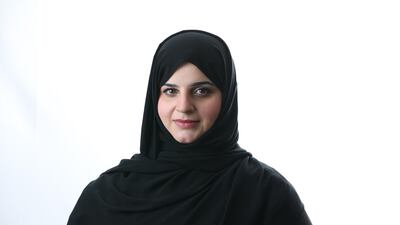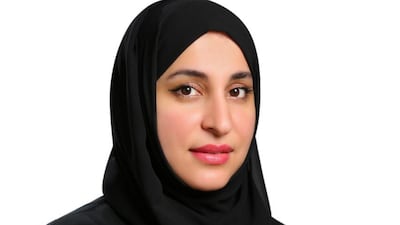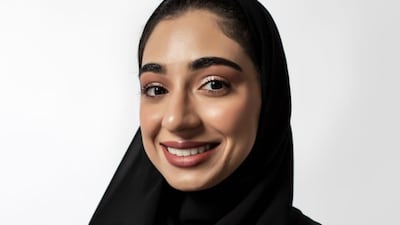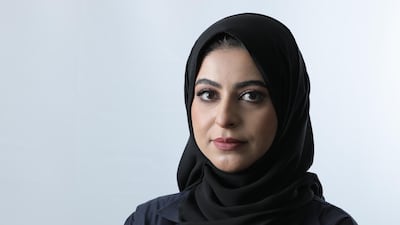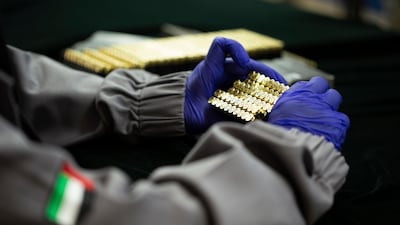Emirati female engineers are playing a pivotal role across the Stem sector and taking up roles in a field traditionally dominated by men.
Gender equality at the workplace is a sign that the UAE’s focus on promoting women in Stem is beginning to pay off.
According to a 2018 Times Higher Education report, the number of female students in the country enrolling in Stem subjects (science, technology, engineering and mathematics) is far higher than in many other countries, such as the UK, Canada, Germany and France.
The study found almost half, 44.5 per cent, of engineering graduates were women, while in Germany, Canada and the UK, the figure is 20 per cent or lower.
“Women have been leading and succeeding in all fields related to science and engineering. It’s something we started a decade back,” said Lamia Al Marzooqi, 25, an Emirati from Abu Dhabi.
She works as a development engineer for Halcon, a manufacturer of precision-guided systems in air defence.
"I am surrounded by men and women," she told The National on International Women in Engineering Day.
The event, which falls each year on June 23, aims to honour women working in the field.
Although huge progress has been made in the past decade, things were a bit different when Mariam Al Hosani, 42, an Emirati from Khor Fakkan, embarked on her career.
Her parents initially wanted her to study medicine.
But she had harboured a desire to become an engineer since she was a child, after noticing everything around her was created by them.
“My dad wanted me to be a doctor,” said Ms Al Hosani, a specialist in quality assurance at Al Tariq, which manufactures precision-guided air munitions.
“At the time we didn’t have that major in the university where I lived. And he refused the idea that I go to a different city to study,” she said.
But her parents granted her wish and she embarked on a degree in engineering. They were happy for her and she scored good grades.
“At the time it was very rare for a female to go into this major,” Ms Al Hosani said.
“That was one of the debates with my dad. He said ‘Where are you going to work? Everyone who works there is male.’ But I told him this is what I love and this is what I am going to do.
“I always say to young women, if you have a passion in design or engineering, or building, go for it. There is no limit.”
Haya Al Nuaimi, a design engineer for Nimr, which makes armoured military vehicles, said she always had the full support of her family.
But the parents and siblings of her female engineer friends were less keen on their career choice.
Ms Nuaimi’s brother is also an engineer, as is her niece.
She credits the government for the growth in female participation in the sector.
Ms Nuaimi said she had met Sheikh Mohamed bin Zayed, Crown Prince of Abu Dhabi and Deputy Supreme Commander of the Armed Forces, several times, and he always encouraged her and fellow students to forge ahead in their careers.
“He told us to complete our master’s degrees. He encouraged us,” she said.
Receiving support, particularly from female colleagues, is often cited by women engineers as critical in advancing in their careers.
Latifa AlKaabi, 29, a process engineer at Ammroc, which provides maintenance, repair and integrated logistics support for military and civilian aviation, said one of her female colleagues has always been supportive. It is a role she aims to take on one day, to help others.
“I think finding someone who helps and supports is important. I would like to encourage people to develop themselves and grow, personally and career-wise.”
